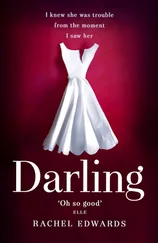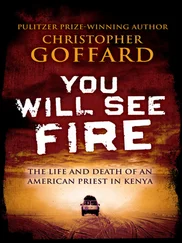Dahlman felt the fire in his arm, a kind of quickening needle warmth, the first charge being the worst, burning up to his shoulder so quickly, and he waited there, the burden of old Gerber on his other arm. He tried to calm himself and tried to think, and he thought, he was a peaceable farmer, a good quiet man, and he had done most things rightly and fairly, and every goddamn thing went wrong at once, and he wished for a moment that he had someone there to complain to, to tell exactly as it happened that he had wanted none of it and deserved none. He thought, too, of why he had ever left the yard or the house, if he had just stayed in the house old Gerber would have peacefully died and he, Dahlman, would not have been there, nor would he have heard the dog or touched the snake. And at the next moment he was enraged, and he had a sudden urge to leap upon that snake and to crush it in his fists, grind it into a writhing and rubbery powder beneath his grip, beat it into mangled shreds, beat it and beat it, and he thought that really he would have, but the weight of Gerber was too heavy on him. He stood holding his breath, feeling that burden of old Gerber on his arm and shoulder as if lodged there forever, and the building fire in his other arm from the snake stabs and both were strengthening at once, the weight and the poison fire.
“If I should leave Gerber here,” he said, thinking aloud to himself, “perhaps I could make it…” It was now no more than thirty yards. He remembered from his school days that exertion after a snake bite was bad and that it would spread the poison quickly through him, and if he carried Gerber on there would only be exertion. If he let Gerber fall… released himself from that weight… for all he knew the old man was dead anyway. He remembered the old animosity, the bafflement and irritation of three generations of Dahlmans. Let him drop there, the water would accept old Gerber as readily as it had always reached out for him down there at his swamp shack.
From the edge of the water came the barking of the dog and whining, and the dog’s high sound merged with a ringing in his ears.
Dahlman did not even look at the dog, did not look at anything for the sun was far too bright on that dark water and there was growing a terrible hotness in his head. He shoved the weight of the old man ahead of him along the tree, and he remembered vaguely that the snake had retreated the other way and they were all right. “Come on, come on,” he muttered, grinding his teeth in his fury. A little froth appeared on the corners of Dahlman’s mouth and his jaw was working as his legs and arms worked. He was very hot and the dizziness crept along his spine to the back of his head and he had to blink to see at all.
“Come on.” He hefted the old man, pulled him nearly upright, and then he plunged past the tree into the thigh-deep water, dragging Gerber by the arms and the coat. Dahlman stumbled on the tough and tangled cornstalks submerged in mud and he fell, flailing backward, and struggled up to swallow mud and then the air and he grabbed the slipping Gerber again and pulled him on with an outraged rush, dragging him on ferociously, as a mad and bedraggled dog would drag some black, offal-stuffed rat, the legs of Gerber slithering behind, leaving a little wake of bubbles and mud.
“Come on, you old bastard, come on.” Dahlman looked ahead, but the sun was swimming in the film of muddy water and he was dizzy and he could not see and he started to vomit, but the tightness in his chest was too intense and all that he coughed was a little saliva. He closed his eyes tightly so that he could not see at all and he went on. He felt the old rows of corn in the mud and he counted them, and he lost count for the ringing in his ears and yet he went on, until the blood thundered in his skull and twisted his brain so that his eyes seemed to leave their very sockets, were wrenched aside too, distorted as his whole body was rent and distorted. The dog barked nearer, farther, nearer, louder and louder, the dog going mad in its panic, and Dahlman clenched his face and tried to run, dragging the slithering Gerber like a turtle through the mud and he fell and felt the water splash and the water did not even cover his knees. He clutched ahead and found the barking dog. His hands caught the dog and he pulled himself ahead and he and Gerber and the sprawling, yelping dog were rolling together, and Dahlman swore over and over with the blood choking him, “Damn you, Gerber. Damn you.”
There was the high cry of the woman, and Dahlman saw the convulsive sun vibrate and the earth yawned and opened and the world burned him in its jerking convulsive motion.
The boy stood tense, holding the post steady and straight in the post hole his father had dug to fill the broken line in the fence. He was a young boy, twelve or so, with light blond hair, like his father’s where it had not turned gray, and with eyes the color of smoke, holding the even cool color in his eyes as he looked across the hill into the valley where the neighbor lived. The boy watched the neighbor come slowly up the hill, across the cornstalk-littered ground, turning now deeply but sparsely green with the new spring crop of oats. The neighbor was still a long way away, but the boy scrutinized him closely as he approached.
They had come there in the spring; the boy’s father and the family of six, not counting the mother, had come to this cold farm with its spiny trees like thistles and the old, unpainted buildings crouched between two hills like broad-backed snuffing gray-colored hogs. The boy had come with his parents and his five brothers and sisters, but for two months he had seen no stranger except at the country school — only his father had visited around, talking to the neighbors and returning home to tell what the neighbors knew.
The cows broke out the day before, snapped the rusted wires and the rotted posts that harbored fat white slugs and the sawdust manure of wood-boring bugs, and had trampled across the neighbor’s oats field, chewing up the harrowed land turning green with young oats with their hooves, before the boy and his father got them turned back. The cows were still in the yard and he and his father worked on the fence, putting the posts in first before the wires could be pulled up and repaired. The day was cloudy, portending rain, and the clouds slid fast from behind one gray hill, over them, to the other hills beyond, drizzling lightly, only to be told by the sensitive pricks on bare arms, leaving a coldness like a snake-skin chill.
“Kick in some dirt, Clayton. Don’t just stand there,” the father said with a voice thick and slow but still reflecting a kind of impatience. The boy looked down to the half-moon slit around the post and pushed some dirt into the hole with his foot. The father told him to stop then, and he bent, kneeling beside the post, and tamped the dirt tight and hard. The old man used a long, slender steel rod to tamp the dirt in. The boy watched the arm and the steel rod pump up and down, leisurely but powerfully, saw the sweated shirtsleeves move with the slow, strong movements of the old man.
“There’s a man coming up the hill,” the boy said. The old man did not say anything. He acted as if he hadn’t heard.
“There’s a man coming,” the boy said again, insistently.
“I know,” the father said, his voice flat with indifference. “I seen him an hour ago. Now pass in some more dirt.”
The boy pushed in the dirt and watched the man come to them, the shoes of the man heavy in the mud of the new oats field.
“Howdy,” the man said, when he was near to them, and the father turned on his knees and laid the bar aside.
“Howdy,” the old man said, grasping the post and standing with heaviness and tiredness. The father squinted at the face of the neighbor, hidden partly behind the pulled-down cap, while the boy gawked at it. It was a face bloodless and yet suffused with a blood color, a face with a scraped lavender birthmark, the mark starting at the temple, hidden partly by the cap, and cutting down the left side of the face from the ear to the jawbone and fringed at the lips with the deep-purple shade, the color of a rotted plum that the worms have eaten into, and the mark branded the eye with a living, livid, sore redness, making anyone who saw the man look instinctively at the inflamed texture around the left eye. The birthmark pulled the lips crooked, made them seem open, even if they were not, made them look dead with that deep-purple, bloodless, blooded color. It was the purple of something dead — the purple on dead horses’ heads before the rendering truck or hogs come to them. The boy stared at this face, the face reflecting the sorrow and the sufferings of lifetimes, a face with the mark of Cain perhaps, or just of the man’s parents; it was a face with that naked hurting look of a burn or a brand healing and yet never quite healed, always inflamed and sensitive and sore; it was a face of terror and of bad dreams, giving to anyone who saw it a weird and evilfearing anxiety.
Читать дальше











